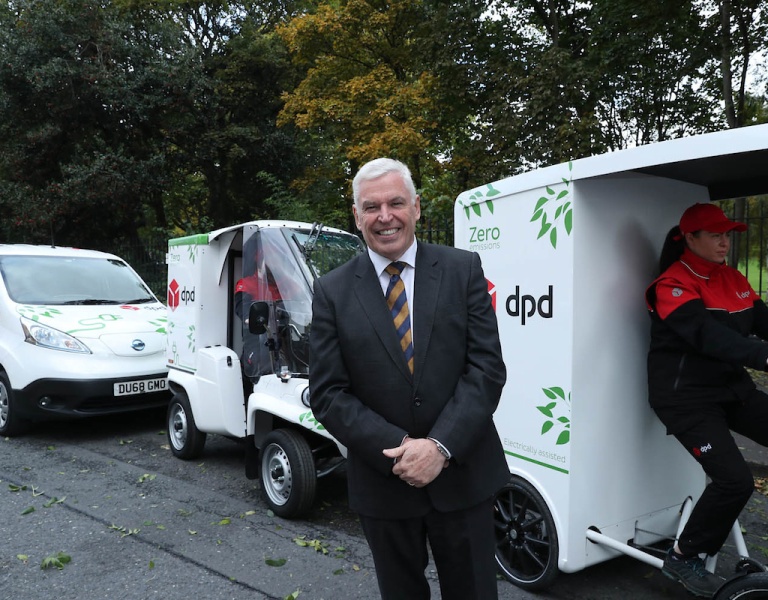Dpd delivers with electric fleet
Dpd, the courier firm, had a busier 2020 than most companies. While keeping up with delivery demand, it also continued to electrify its fleet.
The project
Dpd's central sort hub is in Athlone, Co. Westmeath, where 400-500 staff are based. It then has 37 franchised depots around the island of Ireland employing almost 1,700 people.
In April 2019, dpd launched 'ElectriCity', Ireland's first electric Depot and parcel delivery depot, in East Wall in Dublin. This intention is to provide an emissions free last mile delivery for Dublin's city centre. The fleet ranges from smaller Paxter vehicles, which are like golf-carts, to Nissan NV200 electric vans.
Now, Sustainability Programme Manager James Atkinson is expanding the EV fleet "to future-proof our business and first and foremost be ready for low emission zones."
Dpd currently has 15 electric vehicles on the road and is waiting for the arrival of 11 more in March. The fleet is made up of a range of sizes, makes and models, to cater for different delivery areas.
Dpd estimates two thirds of its emissions are from that last mile of the delivery journey. By making the last mile emissions free, dpd have ambitious plans to reduce their overall emissions. With just 15 EVs, dpd has already reduced CO2 emissions by 30 tonnes and is targeting a 300-ton per year saving by 2025.
While EVs are currently more expensive to purchase, the fuel savings are immediately obvious. It costs €8 to charge a van with electricity versus €13 to fill up with diesel for the same distance. If a driver is doing longer routes of 150km a day, this will see a saving of €3,000 per year for just one van.
The vans have lower maintenance costs too and drivers are reporting back that they enjoy the quicker acceleration and less noise when driving.
James says there is little to no range anxiety among drivers because they know in advance what routes they are doing and how much charge is needed for the distance. Chargers are installed at depots with EVs so drivers can recharge without needing to stop when out on the road.
What's next?
Dpd will continue to expand the EV fleet as more of its diesel vans come to the end of their lifecycles.
Customers are already noticing when an EV makes a delivery and are asking for 100% electric deliveries. Dpd can't offer it on an individual customer basis but plans to create electric zones within Dublin, for example, and those designated areas will have a guaranteed electric fleet.
Dpd is a member of SEAI's Large Industry Energy Network (LIEN) and reports its annual energy use. It is also beginning an application to EXEED, SEAI's Excellence in Energy Efficiency Design programme. As part of that, the organisation has created an energy plan and it receives advice from an energy consultant who offers guidance on what SEAI business grants and supports may be appropriate for dpd to become more energy efficient.
Dpd carried out an energy procurement review last year and went out to tender for their 1.2-gigawatt hours consumption per year. In December 2020, they applied for a Maximum Import Capacity (MIC) reduction closer to their historical peak demand. This will save about €10-15,000 per year in energy costs. They established an affiliate rate with an energy provider so all dpd depots can avail of this new 'dpd rate' and all that energy is certified renewable.
Dpd retrofitted efficient LED lights with PIR sensors and dimmer lights with an expected energy saving of 12,000 kWh per year.
The company aims to have all depots running on renewable energy by the start of 2023. They are also looking into onsite generation with solar panels.
Read our guide for business switching to EVs Find out why this car owner switched to an EV